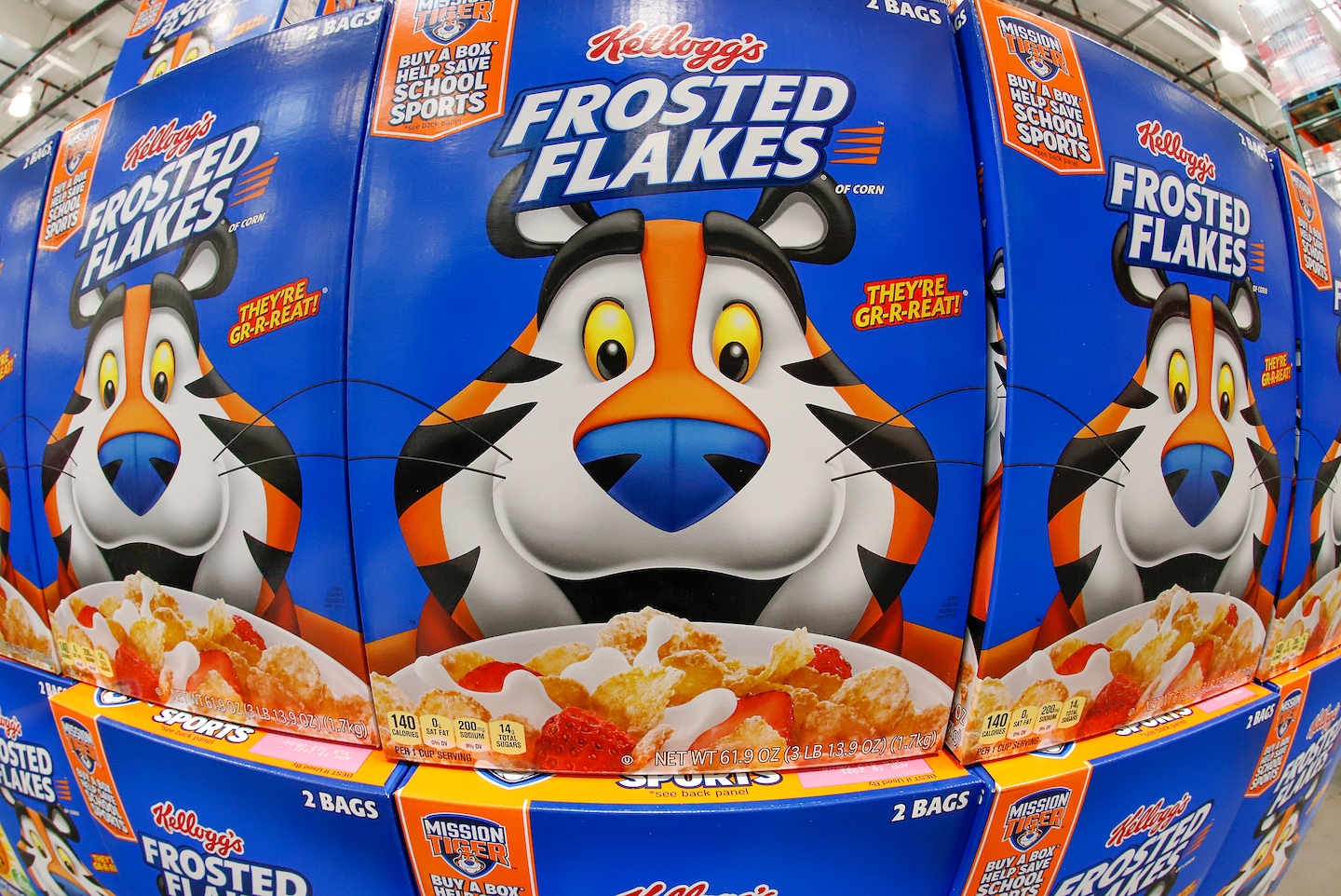None of the new, publicly traded companies has been named, but the breakup is expected to be completed by the end of 2023.
Kellogg derives 80 percent of its revenue from international snacks, noodles, frozen breakfasts and other foods that will make up what’s been dubbed the “Global Snacking Co.” The next-largest entity, dubbed the “North America Cereal Co.,” will become the leading cereal business in the United States, Canada and the Caribbean. The smallest entity will exclusively produce plant-based foods, such as MorningStar Farms products, aiming to capitalize on the prospects of long-term growth in the United States and abroad for vegan and vegetarian foods.
Last year, Kellogg generated more than $14 billion in sales.
“Put simply, each of these businesses have different priorities and splitting up allows the respective management teams to focus solely on accomplishing the long-term goals, with the potential of delivering more value to its shareholders,” said Michael Farr of the investment firm Farr, Miller & Washington.
In prior years, some investors and management teams tended to favor sprawling conglomerates, touting the benefits of combined operations and teams. But the promised corporate “synergies” — now often derided as a boardroom buzzword — often fell short of expectations.
What’s more, Farr said that since the onset of the coronavirus pandemic, the importance of supply chains has been heavily scrutinized, forcing executives to reconsider how to operate in the most efficient way. That can lead to separating business lines.
Kellogg emphasized the success of its global snacks business, highlighting its growth in emerging markets. Kellogg expects its snacks operation, relative to the legacy company, to expand even faster, helping to explain why investors might view the snacks business as an even more valuable stand-alone company.
Meanwhile, the cereal and plant-based operations are at different stages of growth: stable sales with the goal of improving profit margins, and an emerging food category with huge prospects.
“These businesses all have significant stand-alone potential, and an enhanced focus will enable them to better direct their resources toward their distinct strategic priorities,” Steve Cahillane, Kellogg’s chair and chief executive, said in a statement Tuesday.
The company’s board of directors has signed off on the plan. Once the companies are broken up, existing shareholders will be given pieces of the cereal and plant-based food entities based on the proportion of their Kellogg holdings.
The two smaller businesses will remain based in Battle Creek, Mich., the company said. The larger global snacking operation will maintain its corporate headquarters in Chicago.
Kellogg is the latest legacy company to opt for a breakup, following announcements from Johnson & Johnson, General Electric and Toshiba late last year.
The wave of carve-outs marks a departure from an era of corporate empire-building — perhaps best exemplified by General Electric’s Jack Welch — that took flight in the 1960s and accelerated in the 1980s. But management teams no longer believe that the whole is worth more than the sum of its parts. And by standing up the most lucrative or fast-growing segments of a business, their goal is to unlock better returns over time.
While consumers might not notice much difference in how the new companies operate, investors will take note. As with the other recent corporate spinoffs, the new Kellogg entities will provide a test case of financial performance. If they can generate better returns, it’s likely that other conglomerates will pursue a similar course.
Investors appeared to celebrate the decision, driving shares upward almost 2 percent at the closing bell Tuesday.
The mood on Wall Street was optimistic on the first day of trading coming off a brutal week. Wall Street posted its worst five-day run since March 2020 after the Federal Reserve pushed through its biggest interest rate increase since 1994 to try to control inflation.
